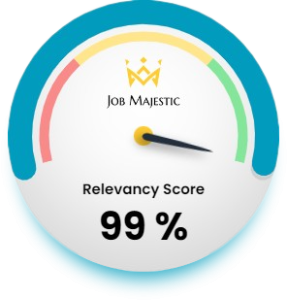Recognizing the Importance of Self-Care
“If you are sick, take a sick leave and rest. Do not force yourself to work as no one will be giving you rewards or awards for being at work even though you are sick.” This advice from my doctor, shared during my hesitation over needing a medical certificate, resonates deeply with the common dilemma faced by many employees.
This isn’t unique. A similar story unfolded with a lady who went to the doctor requesting a mere two-day MC. The fear of taking sick leave, often seen as a burden or a sign of weakness, can be surprisingly common. (Read story at Weird Kaya)
Often, the fear of taking sick leave stems from concerns about work piling up and the impact of one’s absence on colleagues. It’s natural to worry about the workload or the inconvenience caused by being away from work. However, prioritising your health is crucial not only for your well-being but also for maintaining a healthy work environment.
Overcoming the Fear of Taking Sick Leave
We’ve all experienced that internal struggle when feeling unwell but hesitating to call in sick. This fear is common among employees who worry that their absence will disrupt workflow or reflect poorly on their dedication. However, pushing through illness can have serious consequences, prolonging recovery time and potentially spreading illness to others.
It’s important to recognize that taking sick leave when necessary is not a sign of weakness but of responsibility. Ignoring your health can lead to burnout, decreased productivity, and long-term health issues. By prioritising self-care, you are investing in your ability to perform effectively in the long run.
Prioritise Your Health For Everyone’s Benefit
Remember, your well-being is essential. Taking necessary sick leave helps you recover faster and return to work ready to contribute positively. A healthy workforce is a productive workforce, benefiting both employees and the organisation.
By taking the time to rest and recover when needed, you are not only taking care of yourself but also contributing to a healthier and more sustainable work environment. This benefits everyone by reducing the spread of illness and promoting overall well-being.
Subscribe to Our Newsletter
Subscribe to our newsletter to receive job search tips from us and personalized job recommendations from our AI, TRAIN!
The Impact on Company Culture
Forcing yourself to work while sick not only harms your health but also sends the wrong message about company priorities. When employees feel compelled to work despite illness, it creates an atmosphere where well-being takes a back seat to productivity. This can contribute to a culture of presenteeism—being physically present at work but not fully productive which ultimately affects overall morale and engagement.
In addition, promoting a culture that values self-care and wellness can enhance employee loyalty and satisfaction. Employees are more likely to feel supported and appreciated when their well-being is prioritised, leading to higher job satisfaction and retention rates.
Creating Supportive Workplace Environments
Hey employers, companies have a crucial role in fostering environments that prioritise employee health and well-being. Here are some ways they can contribute:
- Clear Sick Leave Policies: Transparent policies on sick leave reduce bureaucratic obstacles and financial concerns associated with taking time off. Employees should feel confident and supported when requesting sick leave, without fear of repercussions.
- Open Communication: Cultivating an environment where employees feel comfortable discussing health issues fosters trust and allows for flexible solutions. Encouraging open communication between employees and managers can lead to more effective accommodations for health-related needs.
- Leading by Example: Managers who prioritise their well-being and utilise sick leave when needed set a positive example that encourages others to do the same. When leaders prioritise self-care, it signals to employees that well-being is valued within the organisation.
Embracing a Culture of Well-Being
Prioritising your health isn’t selfish—it’s essential for sustained productivity and happiness at work. Let’s move away from the “hero” mentality and embrace a culture where everyone’s well-being is valued and supported.
By promoting a culture of well-being, organisations can create a positive and productive work environment where employees feel valued and empowered to prioritise their health. Ultimately, investing in employee well-being pays off in the form of increased productivity, higher morale, and reduced turnover.
Conclusion
In conclusion, taking sick leave when necessary is not only a personal responsibility but also a vital step towards maintaining a healthy and productive workforce. Both individuals and organisations benefit from prioritising well-being and creating supportive work environments.
Remember, your health is your most valuable asset. By taking care of yourself, you are investing in your ability to perform effectively and contribute positively to your work and your life. Let’s work together to prioritise well-being and embrace a culture where everyone thrives!







